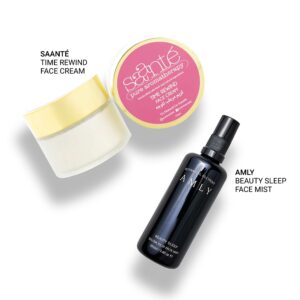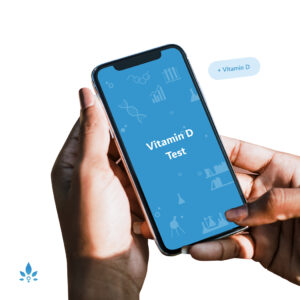Getting the Vitamin D Your Body Wants and Needs


Known as the ‘sunshine vitamin’, vitamin D plays a vital role in calcium absorption, bone and muscle health, and immune function.
Your body needs vitamin D. It helps our bodies absorb calcium, magnesium and phosphate, all vital for bone, muscle and dental health. Insufficient vitamin D has been linked with soft bones and osteoporosis in adults and influences neuromuscular function. In children a lack of vitamin D can lead to rickets and bone deformities.
There are also strong links between vitamin D and a healthy immune system. A weakened immune system can put you at increased risk of viral infections, so it’s not surprising that there has been some focus on vitamin D during the COVID-19 pandemic.
And a recent study published by the Lancet showed that increased vitamin D concentrations before conception were associated with reduced pregnancy loss.
DHA studies shows the majority of the UAE population are deficient in Vitamin D. Get tested today by ordering an at-home Vitamin D blood test. Easy and cost effective, you will get your doctor- reviewed results sent by email within 24 hours along with lifestyle recommendations.
So, what is vitamin D and why is it the ‘sunshine vitamin’?
Technically vitamin D is a calcium-regulating hormone. And when we talk about vitamin D we really mean its most common dietary forms, vitamins D2 and D3. Both play the same role in the body but are derived from different sources.
Your skin makes vitamin D when exposed to the ultraviolet B (UVB) rays from the sun. The UVB interacts with a form of cholesterol to create vitamin D3 which is then transformed into active vitamin D in your liver and kidneys.
How much sun exposure do our bodies actually need?
Even those living in sunnier climes can struggle with vitamin D levels and the pandemic, with many people forced to stay inside or in lockdown for extended periods, will have contributed to this.
The reality is your skin’s vitamin D production depends on more than mere exposure to the sun. Where in the world you live, the latitude, season, your lifestyle, workplace, use of sunscreen, skin pigmentation can all impact how much vitamin D your skin is able to take in and synthesize.
Adding vitamin D-rich foods to your diet can complement sun exposure, although doctors don’t recommend relying on dietary sources alone. Vitamin D3 is found in fatty animal products including oily fish, such as mackerel, salmon, sardines and also shellfish, beef liver, egg yolk and butter. Your vitamin D2 will typically come from plant sources and fortified foods including cereals, dairy products and fruit juices.
If you find that a combination of sunlight and food sources are not giving you enough vitamin D you may need to take vitamin supplements. According to the Mayo Clinic, the recommended daily amount of vitamin D is 400 international units (IU) for children up to age 12 months, 600 IU for people ages 1 to 70 years, and 800 IU for people over 70 years.
How can I tell I have a vitamin D deficiency?
Physical symptoms of vitamin D deficiency include bone and muscle pain, fatigue and tiredness, impaired wound healing and an increased susceptibility to sicknesses such as cold and flu. Mood swings, depression and insomnia are among the mental symptoms linked with a lack of vitamin D.
Vitamin D deficiency has become increasingly common in recent years, but many people won’t be aware they are deficient in the vitamin as the symptoms can be subtle. If you or your doctor suspect you aren’t getting enough vitamin D a simple blood test will determine your levels. Alternatively, Nabta Health offers at-home tests.
Finally, for those wondering whether they should be taking vitamin D as a precaution against COVID-19 – the UK’s National Health Service (NHS) notes on its website that “there is currently not enough evidence to support taking vitamin D to prevent or treat COVID-19.”
References
‘Vitamin D’, NHS,
https://www.nhs.uk/conditions/vitamins-and-minerals/vitamin-d/
‘Vitamin D’, Mayo Clinic,
https://www.mayoclinic.org/drugs-supplements-vitamin-d/art-20363792
Sunni L Mumford et al. ‘Association of preconception serum 25-hydroxyvitamin D concentrations with livebirth and pregnancy loss: a prospective cohort study’ The Lancet, Diabetes and Endocrinology, May 30 2018
https://www.thelancet.com/journals/landia/article/PIIS2213-8587(18)30153-0/fulltext
‘COVID-19: Doctors urge residents to have their Vitamin D levels checked’ Gulf News













































